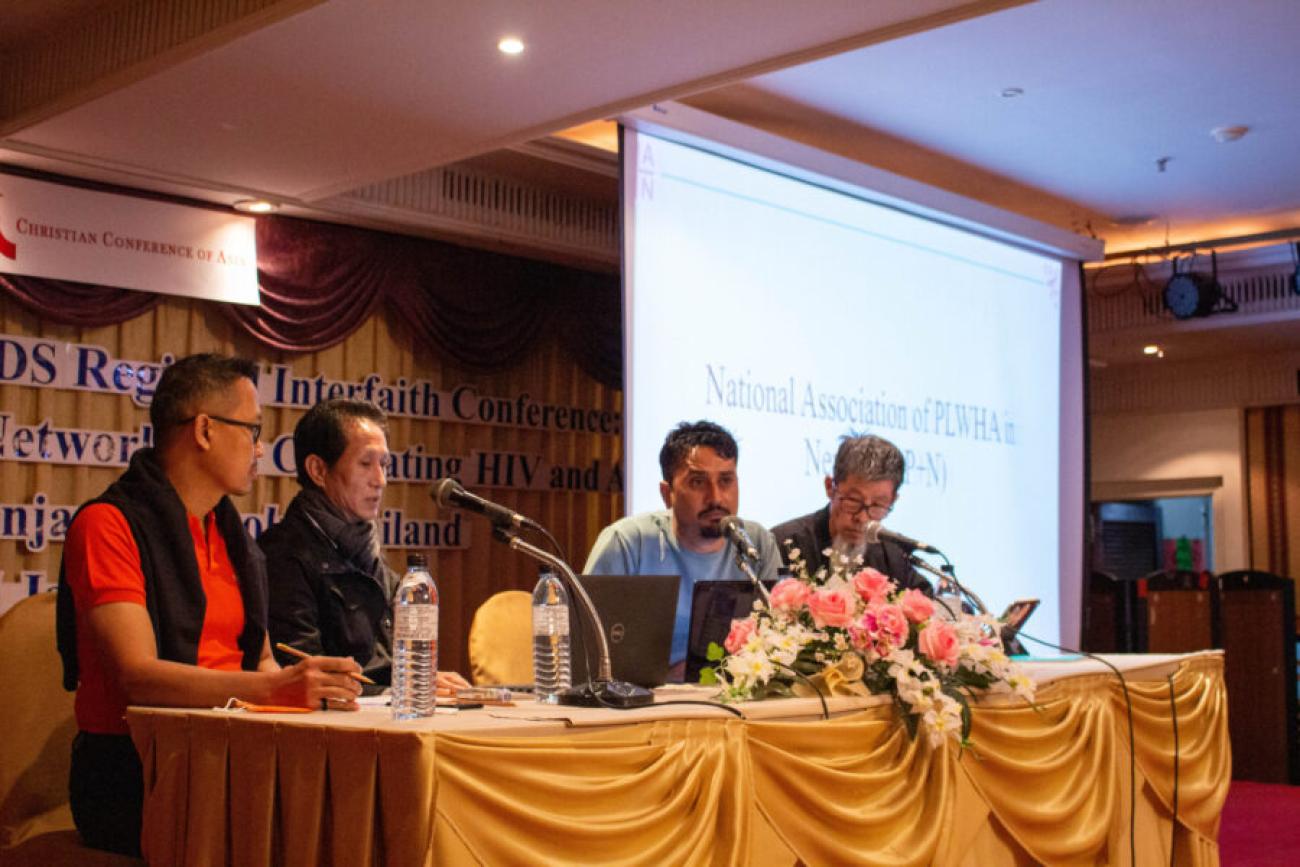HIV-positive people’s networks and faith-based communities share initiatives in combating AIDS pandemic

From left to right: Mr Aan Sasono Rianto, Mr Wangda Dorji, Mr Hiramani Sitaula, Mr Loon Gangte
Bangkok, Thailand: On the third day of the Asian Interfaith Network on AIDS Conference held from 23 to 25 January, representatives from networks of people living with HIV (PLHIV) and from religious communities shared their initiatives aimed at combating HIV and AIDS.
Hiramani Sitaula of the Positive Network in Nepal stated that the organisation’s goal was to improve the quality of life of PLHIVs by responding to the challenges they faced through meaningful involvement in capacity-building and policy development programmes.
Wangda Dorji, executive director of Lhak-Sam in Bhutan, emphasised the importance of developing a strong support system for PLHIV as well as information and education campaigns to combat disease stigma and the importance of establishing networks to share best practices.
Loon Gangte, the founder and executive director of the Delhi Network of Positive People (DNP+) and the Regional Coordinator of ITPC-South Asia, shared about the DNP+’s work in influencing policies, such as easy access to treatment and in providing safe communities and spaces through organised support groups in their communities.
Maria Cristina Caminos Morales, an HIV advocate and trainer representing the National Council of Churches in the Philippines (NCCP), described the efforts to assist women and children living with HIV and AIDS, especially focusing on access to support services and other health-related interventions.
Ms Morales challenged faith communities to delve deeper into their theologies, traditions, and teachings to progress toward ensuring a more dignified life for all. She also mentioned the need of advocating for use of safer practices, access to treatment, voluntary counselling and testing, and empowerment (SAVE approach).
Sr. Mercedes Placino of the Daughters of Charity of St Vincent de Paul spoke about the Catholic Asia Pacific Coalition on HIV and AIDS (CAPCHA), which has been dealing with the social, health, and pastoral aspects of the ministry throughout Asia.
Dr Salil Panakadan, UNAIDS Asia Pacific Regional Programme Advisor, commended the mainstreaming of the HIV and AIDS issue in Asian churches and faith communities.
Dr Panakadan reiterated the importance of the faith communities in combating the AIDS pandemic and assured them that their efforts are appreciated as being a significant part of the overall global efforts aimed at helping humanity overcome the crisis.
The three-day Asian Interfaith Network on AIDS Conference affirmed the importance of networks of people with HIV and faith communities in the ongoing mission of creating a compassionate, life-affirming, stigma-free, and mutually accepting space for people living with HIV and AIDS.











